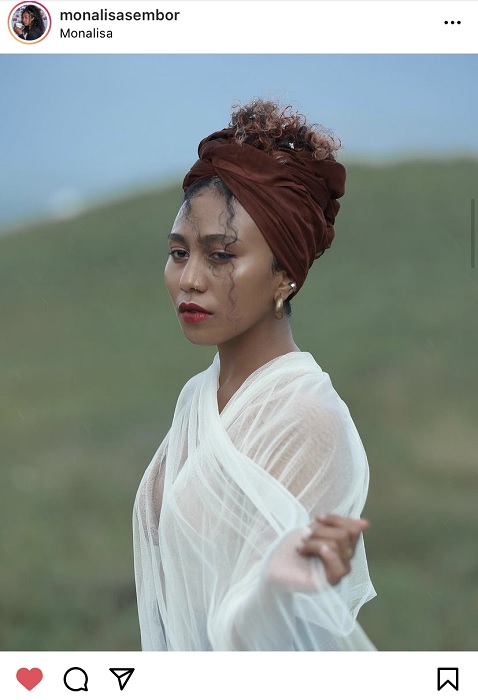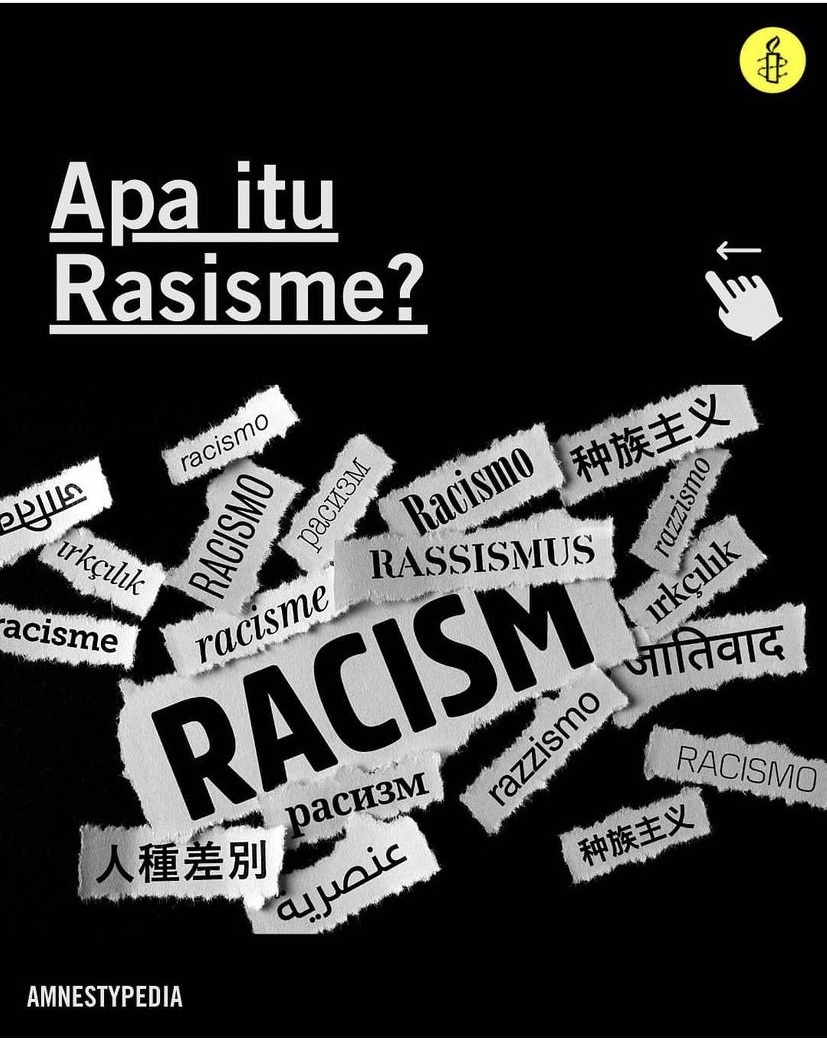Versi Bh Indonesia
Jemma Purdey, Antje Missbach and Tamara Soukotta
In the past two years race and racism has come to the forefront of political and social debate in many countries, including Indonesia. America’s #BlackLivesMatter movement resonated globally and sparked renewed protests including #PapuanLivesMatter and calls for change inside Indonesia. As a post-colonial nation-state, racism is a central theme in Indonesia’s history and continues to reverberate in all facets of society, from art, literature and ideals of beauty to politics and the economy. As two contributors to this edition, Weipo and Munro, write, ‘There is no biological fact of race – human beings are all genetically interconnected, but ideas about race persist in the social imagination.’
In this edition we explore how race and racism developed and continues to exist in the social imaginary, impacting on the lives of Indonesians until today. We are keen to also understand the individual and collective responses to racism and what future aspirations are under discussion in the public sphere.
The edition opens with a provocation from Amnesty International’s Indonesia Director Usman Hamid, calling into question the foundation of Indonesia’s nationhood, it’s motto, Bhinneka Tunggal Ika – Unity in Diversity. Hamid outlines the many obstacles when it comes to equal access to the justice system for racial and religious minorities, using Papuans and ethnic Chinese as exemplary cases. Who are the most vulnerable groups in Indonesian society, and why does racism against them persist? Why is it still so difficult to properly prosecute hate crimes based on race and ethnicity?
These questions resonate within the broader historical, social and political contexts, in which discussions related to Suka, Bangsa, Ras dan Agama (ethnicity, nationality, race and religion: SARA) have been deemed officially taboo since the 1960s. As Tamara Soukotta asks in her article, put simply, 'are Indonesians ready, or yet willing to talk about racism?'
Weipo and Munro bring into focus the issue of economic injustice as a consequence of what they call technocratic racism. The authors argue that a belief that skin colour and culture determines behaviours and capabilities, has limited Papuans’ employment opportunities and perpetuated stereotypes even as the central government commits to improving economic conditions. Alfonsa Jumkon Wayap also investigates this theme, telling stories of structural and gendered discrimination in Papua's traditional markets or 'Pasar mama mama'.
Ilham details the experiences of refugees stranded in Indonesia unable to move back to their homelands or forwards to a new life, revealing the layers of racism and processes of 'othering' evident in this society as in others. Limits and hierarchies are perpetuated, drawn and redrawn. Anne-Meike Fechter’s article focuses on another group of migrants living in Indonesia, who have an altogether different experience. Expatriates living in Indonesia, who have historically been mostly white, have long been accorded a certain privilege. However, in the past twenty years with increased global mobility, this 'group' is increasingly diverse in its origins. In the Indonesian context as in others, this has drawn attention to the importance of intersections of skin colour with class, expertise and also nationality in determining experiences of racism.
Art, culture, history and the body
The pervasiveness of race and racism is apparent in popular culture as well. What do we know about how racism and race are negotiated in the media, and how social media has affected this discourse? Oftentimes, ethnic stereotypes and biases are also present in various forms of art, but racism can equally be combated via this form. Indeed, as articles in this edition demonstrate, in many ways art is at the forefront of debate and activism on race and racism in Indonesia. How are Indonesians making use of art as a tool to negotiate issues surrounding race?
One of Indonesia’s most celebrated contemporary artists, FX Harsono, shares his personal journey of discovery and pilgrimage to uncover the lost history of violence against ethnic Chinese Indonesians during the Revolution. As Usman describes in his article, ethnic Chinese are among the most consistently marginalised and discriminated minorities in Indonesian colonial and modern history. FX Harsono’s artistic practice is part forensic detective work and part therapy as he records, maps and honours those who suffered and were persecuted on the basis of race.

Sadiah Boonstra’s essay details the work of Indonesian digital artist Syaura Qotrunadha, who interrogates the ways in which anthropologists, museums and governments have classified and commodified race within Indonesian colonial discourse. Seen through a contemporary lens, images of rows of skulls of Indigenous Indonesians preserved in Dutch museums in support of the notion of a scientific hierarchy of races seems preposterous. Yet, as Boonstra observes, Syuara’s work shows us that this legacy still lies at the heart of persistent racism.
Wulan Dirgatoro’s review of Garin Nugroho’s theatrical production The Planet - A Lament highlights the tensions that can emerge between artistic intention and practice. She points to the significance of the prominence Nugroho gives to performers from Eastern Indonesia and Papua, incorporating their own artistic forms, but also the ways in which these portrayals hark back to uncomfortable stereotypes.
It is crucial to understand the historical continuities of racism, and we have also encouraged historical perspectives in this edition. What impact does Indonesia’s colonial past have on today’s conceptions of race and ethnicity? Which stereotypes, biases, and inequalities can be understood as colonial continuities? Like Boonstra and Harsono, Bronwyn Beech Jones takes us back into history and the stories of two girls in early twentieth century West Sumatra, to highlight the complex ways in which ‘being Malay’ was formulated, constructed and experienced at that time.
Grounded in feminist and intersectional approaches, like Beech Jones, the articles from L. Ayu Sarawati, Terje Toomistu and Monika Winarnita seek to examine how sex, gender and sexuality interact with race and might lead to heightened vulnerability. As they explain, beauty ideals are also subject to racialised conceptions, an awareness that is slowly growing especially among young Indonesians among whom more and more have chosen to actively resist such norms.
With the influence of the global BlackLivesMatter movement, the #PapuaLivesMatter and other anti-racism campaigns it evoked, are we witnessing new dialogues or approaches to racism in Indonesia?
The contributions to this edition indicate that whilst internationally and especially in the Global North, race and racism issues are increasingly at the forefront of political and social critique, protest and in some cases also change - inside Indonesia the situation is different. As Yuliana Langowuyo's beautiful personal essay reveals, in multi-ethnic Indonesia, racism, discrimination and human rights can also clash head on with notions of family, belonging and identity.
As we assembled the edition and worked with our writers it became clear that overt or explicit and open discussion of racism as a structural problem within Indonesia is still in its earliest stages. As our contributors show, these embryonic discussions are beginning in those sections of society from where larger change often comes – in the arts, popular culture and among young people. We believe that this edition makes a small although important contribution to this emerging discourse and we look forward to following its progress in the years to come.
Jemma Purdey is Commissioning Editor of Inside Indonesia and chair of its Board. Antje Missbach is Professor for Migration and Mobility at Bielefeld University, Germany. Tamara Soukotta is a PhD Researcher at The International Institute of Social Studies (ISS) of Erasmus University Rotterdam and Lecturer in the Bachelor International Studies, Leiden University.
